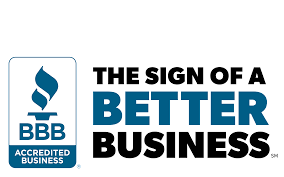Why Are My HOA Fees So High?
February 22, 2023

Whether your HOA’s assessments are monthly, quarterly, or yearly, it’s that time of the year again where you may have noticed the dues are higher. While it can be frustrating and may feel unnecessary, there’s a reason behind those increased assessments, and recently, that’s been inflation.
How Inflation Impacts HOAs
Unfortunately, inflation affects several facets of society, including homeowners associations. Inflation impacts not only property values but also maintenance costs and project costs, including, but not limited to:
- Taxes
- Repairs and replacements
- Utilities
- Vendor contracts
- Labor and wages
- Materials
- Insurance
These rising service costs in addition to supply chain delays can put HOAs in a difficult position, choosing between raising assessments, reducing expenses, and oftentimes a little of both. Budgets must be adjusted accordingly to account for inflated costs.
While some lower priority expenses may be easily cut, many are mandatory and associations are forced to handle the increases, adjusting assessments to accommodate. Additionally, inflation can cause reserve studies to be outdated. An updated reserve study may show that more money needs to be contributed to the reserve fund in order to pay for major repairs and replacements.
The higher property values and increased maintenance and project costs make repairs and replacements more costly, and in turn, the reserves could be inadvertently underfunded. Raising assessments will help adequately fund the reserves to combat inflation.
Why and How Dues Are Raised
So, how exactly can your HOA raise assessments? The CC&Rs outline the assessment increases and approval process, granting the board of directors the authority, and limitations, to raise dues. Sometimes if the percentage of the assessment increase is low enough, the board can approve an increase on its own. However, some associations may require a membership vote to raise dues at all. It depends on state law and your specific HOA’s governing documents.
Ultimately, the annual budget determines if assessments should be increased. The HOA board will calculate the necessary expenses and find the rate needed to fund those expenses. If the current rate is insufficient, then dues should be raised to accommodate. Increasing dues will not only help properly fund HOA operations, but also keep the reserves healthy.
An adequate reserve fund is crucial because inaccurate reserves can prompt special assessments. Funding the reserves builds the safety net for the HOA to use for major repairs and replacements to keep association common areas and amenities safe and extend their useful life. Properly maintaining the reserves prepares for these important projects and helps prevent the need for special assessments. The contribution to reserves will therefore need to be adjusted to accommodate inflation.
Instead of raising assessments, some HOAs may opt for deferring maintenance. However, this should be avoided, as even worse consequences may come of it. Because of catastrophes like what happened with Surfside, deferring maintenance can cost the association, and ultimately the homeowners, so much more than just performing the needed maintenance in the first place. Increasing assessments rather than deferring maintenance is ultimately better for the entire association.
If you think your association has unfairly raised your assessments, you can review state law and your association’s governing documents to ensure the HOA is following proper procedure when it comes to your assessments.
Additionally, make sure to review your options for paying assessments. Your association may offer early bird discounts, payment plans, or easy payment options, and there may be local organizations providing resources for relief.






